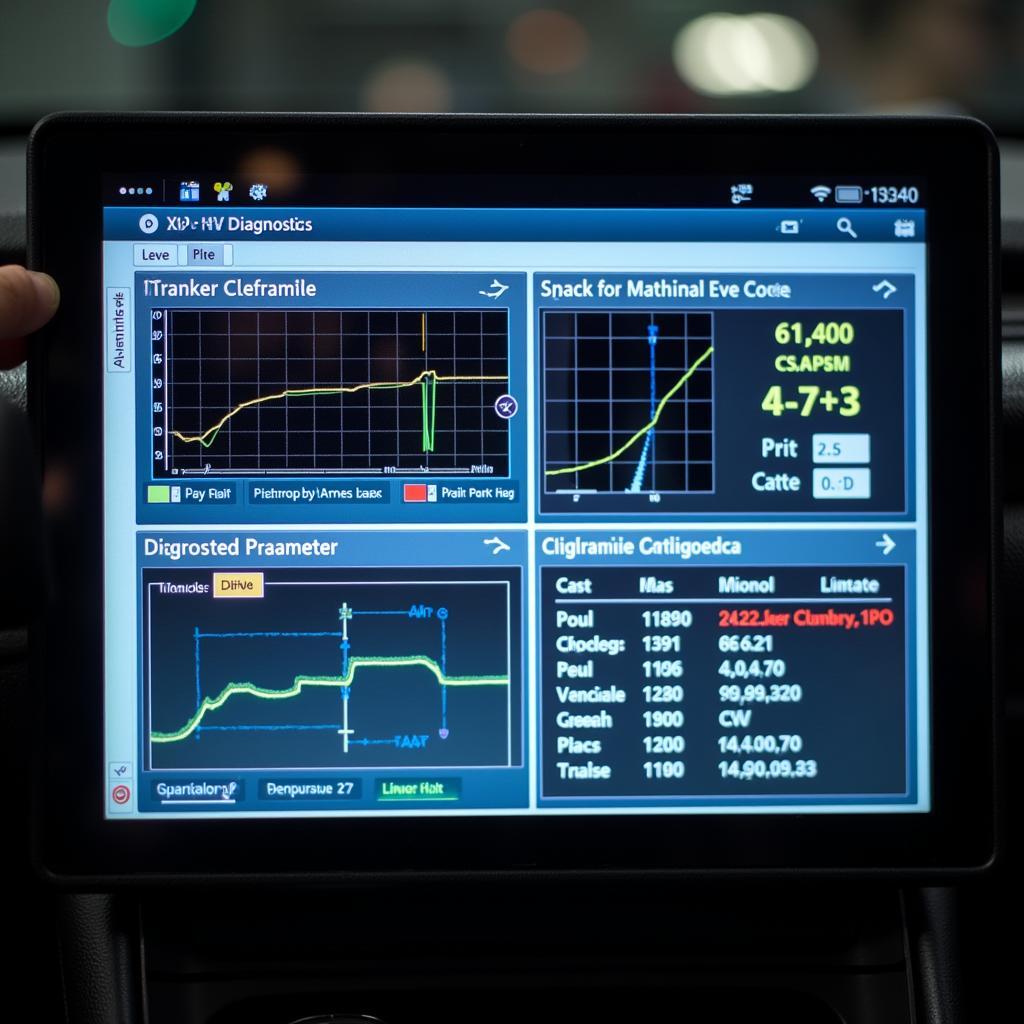Electric cars are rapidly growing in popularity, and with that comes a new era of car repair – Electric Car Diagnostics. This specialized field focuses on identifying and addressing issues within the complex systems of electric vehicles. While traditional car diagnostic tools and methods may seem outdated when working on EVs, understanding the intricacies of electric car diagnostics is crucial for mechanics and car owners alike.
The Rise of Electric Car Diagnostics
The shift from combustion engines to electric motors brings about significant changes in car diagnostics. Instead of focusing on fuel systems, exhausts, and ignition, technicians now delve into the world of high-voltage batteries, electric motors, and sophisticated software that control every aspect of an electric vehicle. This shift requires new skills, knowledge, and diagnostic tools specifically designed for electric cars.
Key Differences in Electric Car Diagnostics
Understanding the key differences between electric and traditional car diagnostics can help car owners better grasp the complexities involved:
- High-Voltage Systems: Electric cars operate on high-voltage systems, posing significant safety risks if not handled properly. Specialized training and safety protocols are essential for technicians working with these systems.
- Software-Driven Systems: Electric vehicles rely heavily on software for everything from battery management to motor control. Diagnostic procedures often involve software updates, data analysis, and troubleshooting complex algorithms.
- Specialized Diagnostic Tools: Electric car diagnostics require specialized tools designed to interface with the vehicle’s computer systems, battery packs, and electric motors. These tools can read and interpret data specific to electric vehicles.
Common Electric Car Diagnostic Issues
While electric cars generally have fewer moving parts than traditional vehicles, they are not immune to issues. Some common diagnostic problems include:
- Battery Health and Performance: Degradation of battery cells, charging issues, and thermal management problems can impact battery life and performance.
- Electric Motor Faults: Issues with the electric motor, such as overheating, sensor problems, or winding failures, can lead to reduced power, strange noises, or complete failure.
- Software Glitches: As with any software-dependent system, electric cars can experience software glitches that affect various functions, from infotainment systems to critical driving systems.
The Importance of Professional Electric Car Diagnostics
Attempting to diagnose or repair electric car issues without proper training and equipment can be dangerous and potentially exacerbate the problem. Here’s why seeking professional help is essential:
- Safety First: High-voltage systems in electric cars pose serious risks if tampered with improperly. Professional technicians have the training and safety gear to handle these systems safely.
- Accurate Diagnosis: Specialized diagnostic tools and software are essential for accurately identifying issues in complex electric car systems.
- Proper Repair Procedures: Repairing electric car components often requires specialized knowledge and tools. Incorrect procedures can lead to further damage and costly repairs.
“Electric cars are becoming more and more complex,” says John Smith, Senior EV Technician at DiagFixPro. “It’s no longer a matter of just changing spark plugs or oil. Diagnosing issues in these vehicles requires specialized knowledge and tools to ensure accuracy and safety.”
The Future of Electric Car Diagnostics
As electric car technology advances, diagnostic procedures will continue to evolve. We can expect to see:
- Increased reliance on remote diagnostics: Manufacturers are increasingly using telematics to remotely diagnose issues and even perform software updates.
- Predictive maintenance: Advanced algorithms and data analysis will allow for predictive maintenance, alerting owners to potential issues before they become major problems.
- Augmented reality and AI: Augmented reality tools and artificial intelligence will assist technicians in diagnosing and repairing electric cars quickly and efficiently.
 Sophisticated EV Diagnostic Software Displayed on a Laptop
Sophisticated EV Diagnostic Software Displayed on a Laptop
Conclusion
Electric car diagnostics represent the future of car repair. As electric vehicles become more prevalent, understanding their complexities will be essential for car owners and mechanics alike. By embracing the advancements in diagnostic tools, software, and training, we can ensure the safe and efficient operation of these vehicles for years to come.
FAQ
- What are the signs of a failing EV battery?
- How often should I have my electric car serviced?
- Can I jump-start an electric car?
- What is regenerative braking, and how does it affect EV diagnostics?
- How can I find a qualified electric car mechanic near me?
Need Assistance?
For expert advice and support on electric car diagnostics, contact us via WhatsApp: +1(641)206-8880 or Email: [email protected]. Our dedicated team is available 24/7 to assist you.

Leave a Reply